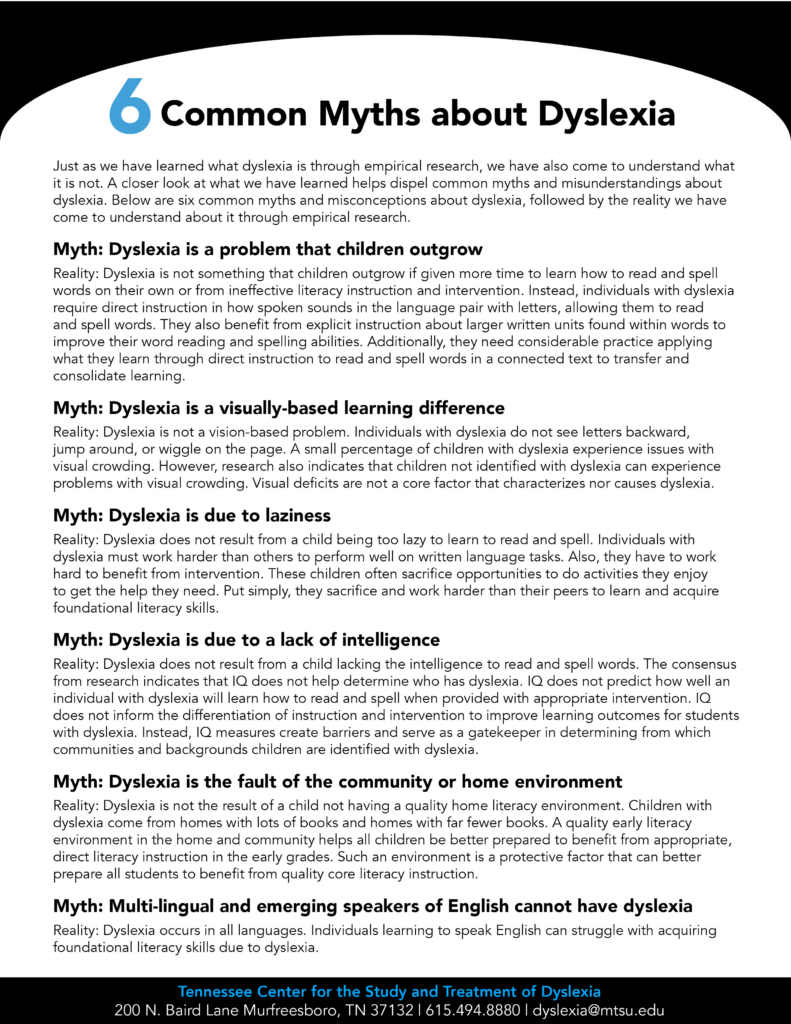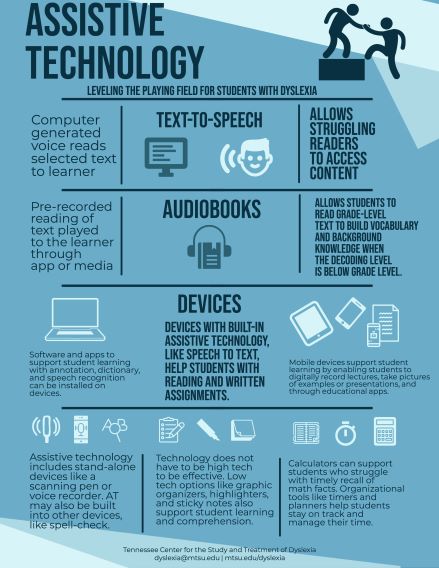Tennessee Center for the Study and Treatment of Dyslexia
Infographics & Infosheets
These infographics and infosheets provide useful information about reading, reading instruction, and reading disabilities. They were developed by staff at the Center for Dyslexia to aid parents, educators, administrators, and others to get information about a specific topic at a glance.
Dyslexia
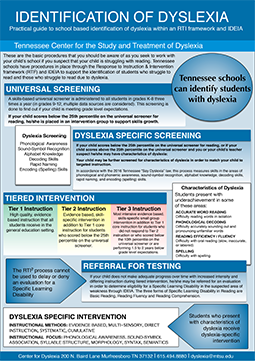
School-based Identification of Dyslexia
This infosheet provides a graphical depiction of the process used to identify dyslexia in accordance with the Tennessee 2016 dyslexia law.
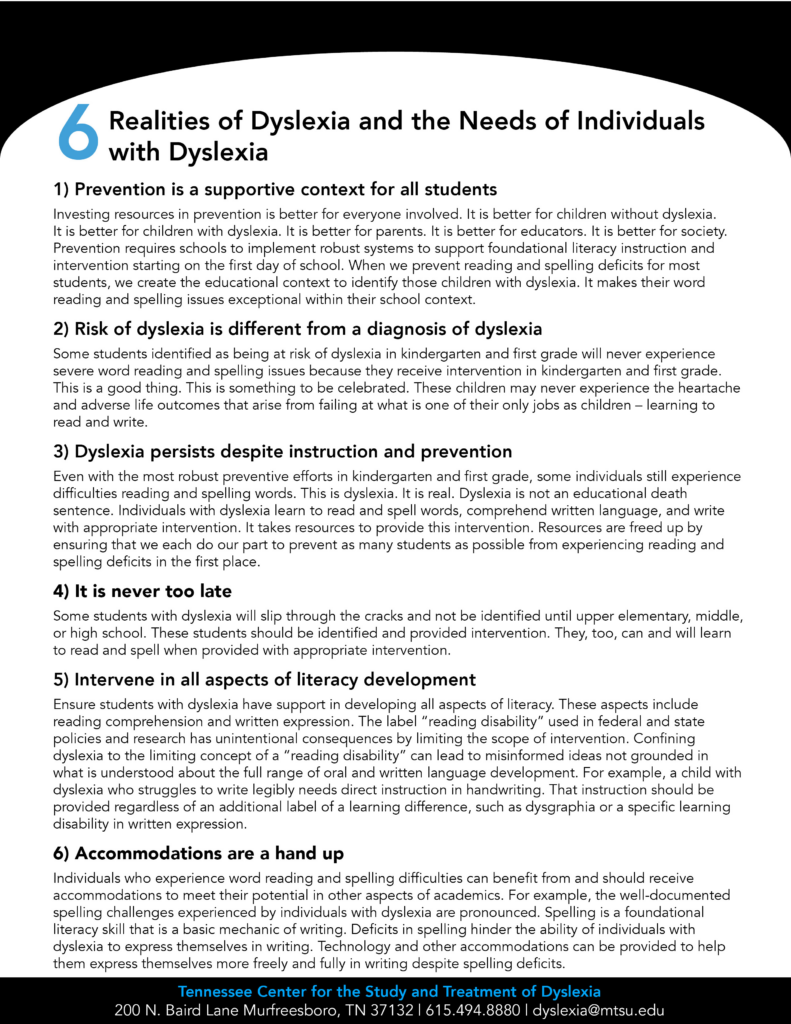
Realities of Dyslexia and the Needs of Individuals with Dyslexia
This infographic highlights 6 realities of dyslexia and the needs of individuals with dyslexia.
NEW! Spanish Translations
Realidades de la dislexia y las necessidades de las personas con dislexia
(Realities of the Needs of Individuals with Dyslexia)
Mitos frecuentes sobre la dislexia
(Myths of Dyslexia)
The Center thanks American Institutes of Research for preparing Spanish translations of the above resources.
Reading Instruction & Support
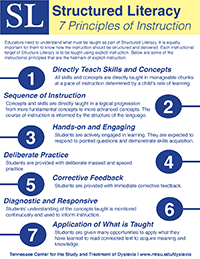
Structured Literacy Principles of Instruction
This infographic outlines some of the instructional principles that are the hallmark of explicit instruction. Educators need to understand what must be taught as part of Structured Literacy. It is equally essential for them to know how the instruction should be structured and delivered.
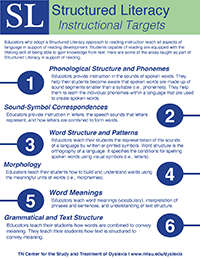
Structured Literacy Instructional Targets for Reading
This infographic outlines some of the areas taught as part of Structured Literacy in support of reading. Educators who adopt a Structured Literacy approach to reading instruction teach all aspects of language in support of reading development.
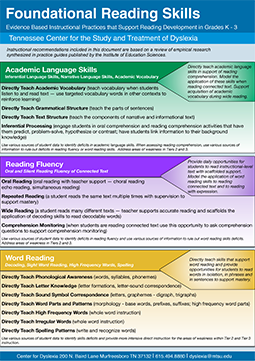
This infosheet provides a snapshot of instruction targets and methods for use with supporting foundational literacy skills. The recommendations offer a synthesis of the conclusions reported in an instructional guide published by the U.S. Institute of Education Sciences.
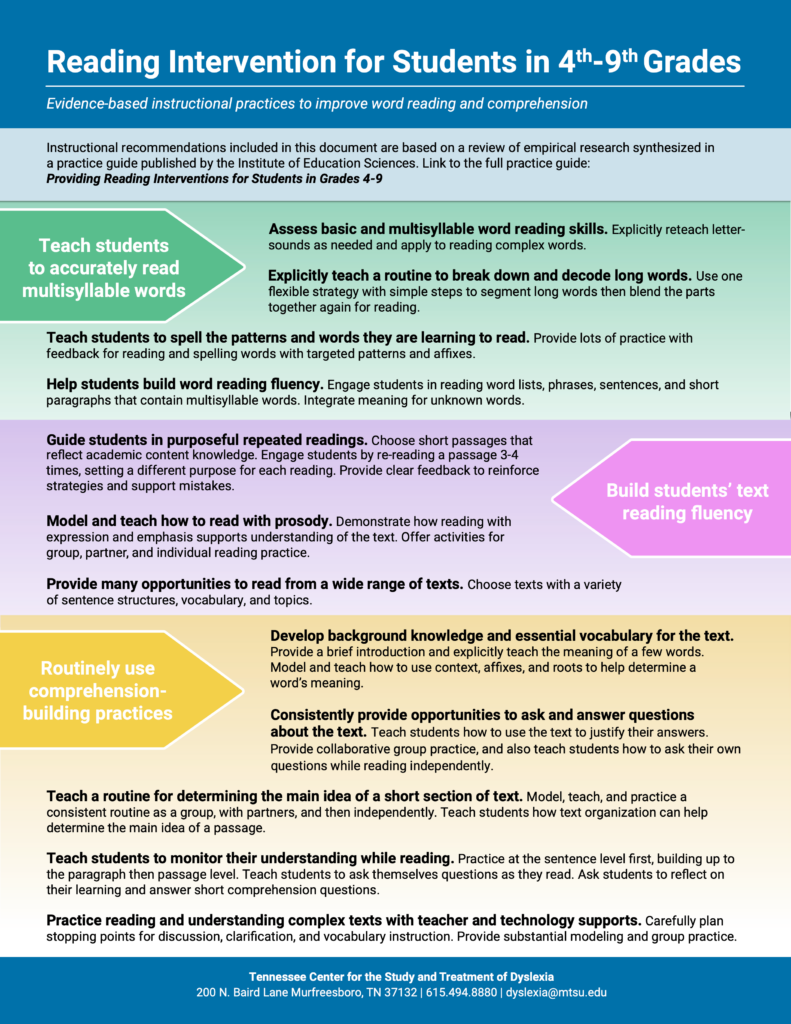
Reading Intervention for Students in 4th-9th Grades
This infosheet provides a snapshot of instructional recommendations to support word reading and comprehension in students in grades 4-9. The recommendations offer a synthesis of the conclusions reported in an instructional guide published by the U.S. Institute of Education Sciences.

This infosheet specifies some of the accommodations that may benefit individuals with dyslexia. Individuals who have a reading disability can struggle to demonstrate their full potential on class assignments and tests. Accommodations support individuals with dyslexia to display their full potential.
Adaptaciones para la dislexia (Spanish translation, courtesy of AIR)
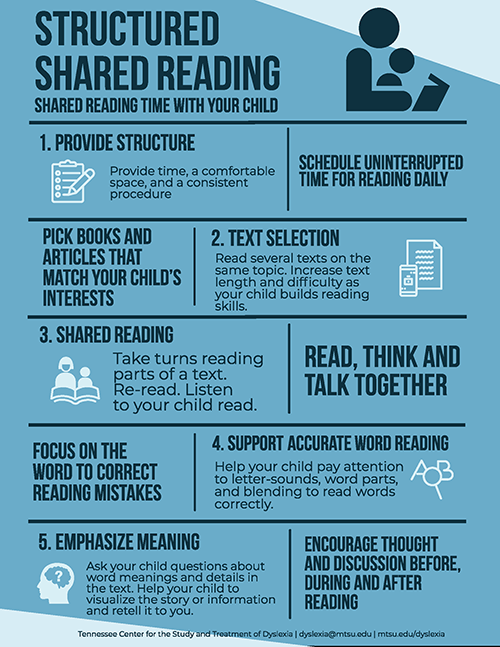
This infographic highlights 5 things to keep in when engaging in shared reading time with your child. This infographic supports a longer shared reading planning guide developed by the Center of Dyslexia.

Structured Literacy Instruction
A collection of fun language tidbits to stoke your structured literacy teaching and learning.


